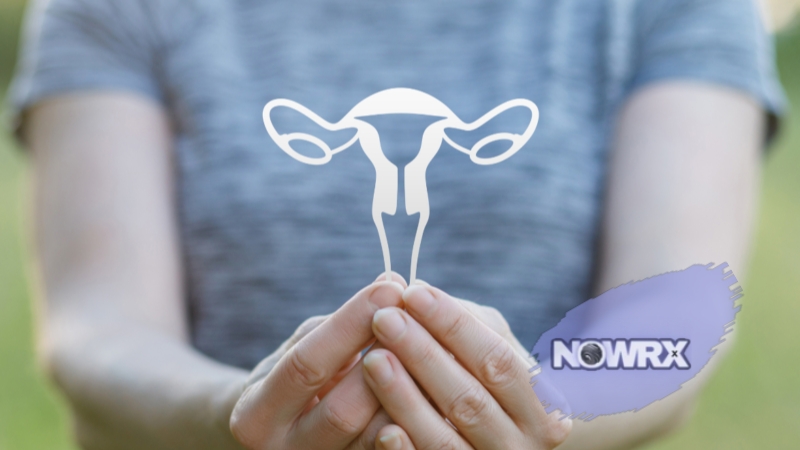You might find yourself in a situation where you wish to delay your period. Whether it’s for a vacation, a sporting event, or any other personal reason, the quest for a natural method can feel urgent.
While the effectiveness of home remedies varies and scientific backing is often scarce, many turn to them as a first step. It’s vital, however, to approach these options with caution and seek professional advice before trying them out.
Here are the safest solutions that won’t cause any side-effects, and could help you delay your period.
1. Apple Cider Vinegar

Some believe that it can delay periods, although scientific evidence on this specific use is limited. The theory suggests that ACV’s acidic nature might help modify hormonal balances, potentially influencing menstrual cycles.
However, it’s crucial to approach this remedy with caution and seek medical advice before trying to alter your cycle with ACV.
How It Works?
ACV might influence menstrual cycles by impacting hormonal levels and improving overall bodily functions. Its high acetic acid content is thought to play a role in detoxifying the body and supporting endocrine health, which in turn could affect menstrual timing.
If you are facing irregular periods, there are some yoga poses that can help you resolve the issue.
Detailed Recipe
Ingredients
- 1 to 2 tablespoons of organic apple cider vinegar
- 1 glass of water (about 8 ounces)
Instructions
- Mix the apple cider vinegar with the water. The dilution is crucial to avoid potential harm to your teeth and stomach lining due to ACV’s high acidity.
- Consume this mixture once daily, starting about a week before your expected period date. It’s advisable not to exceed this amount, as too much ACV can lead to adverse effects.
Additional Tips
- Always choose organic, unfiltered, and unpasteurized apple cider vinegar to ensure it contains the “mother,” believed to be rich in beneficial enzymes.
- For taste, consider adding a teaspoon of honey or lemon juice.
- Start at least a week before your expected period.
Safety Tips
- Always dilute ACV to protect your teeth and digestive system.
- Consult a healthcare provider before starting, especially if you have existing health conditions or take medications.
2. Lemon Juice

A common household ingredient, lemon juice, is often cited for its potential to alter menstrual cycles, though scientific validation remains sparse. The citric acid and vitamin C in lemons are believed to have an impact on the body’s hormonal balance, which might influence the timing of menstruation.
People seek out lemon juice as a readily available and natural method to possibly delay their period, but it is essential to proceed with caution and consult a healthcare professional before attempting any alterations to your cycle.
According to Adrija Chakraborty: “Lemon is highly acidic, and therefore, it may play a role in delaying your period. So, having lemon juice just before your period may push it further and result in a lighter flow.”
How It Works?
The high vitamin C content in lemon juice is thought to potentially increase estrogen levels, which can affect the uterine lining and possibly delay menstruation. Additionally, its natural diuretic properties might also play a role in this process.
Additional Tips
- Use fresh lemons rather than bottled lemon juice to avoid preservatives and additives.
- If the taste is too tart, a teaspoon of honey can be added to sweeten the mixture.
- Begin this regimen a week in advance of your expected period date for potential effects.
Safety Tips
- Lemon juice is acidic and can affect tooth enamel; consider drinking through a straw to minimize contact with teeth.
- Consult with a healthcare provider beforehand, especially if you have a medical condition or are taking medication.
3. Gelatin in Lukewarm Water

A less commonly known but intriguing method involves gelatin, a substance derived from collagen, which is used in cooking and baking for its gelling properties. Some anecdotal reports suggest that gelatin, when dissolved in water, can offer a temporary delay to the onset of menstruation.
A well-known nutritionist Ms. Huda Shaikh claims that “Gelatin is a great remedy if you need to delay your periods. All you need to do is mix together a packet of gelatin and some warm water. If you are in an emergency then this remedy can give you rapid relief and delay your periods for about 4 hours.”
How It Works?
Gelatin’s potential to impact menstruation is based on the idea that it could temporarily alter the body’s natural processes. Though not scientifically proven, the theory is that consuming gelatin might influence hormonal balance or fluid retention in the body, leading to a short-term postponement of the menstrual cycle.
Detailed Recipe
Ingredients
- 1 teaspoon of unflavored gelatin powder
- 1 cup of lukewarm water
Instructions
- Dissolve the gelatin powder in a cup of lukewarm water. Ensure complete dissolution to avoid lumps.
- Consume the mixture promptly after preparation, ideally when you are seeking to delay your period for a few hours.
Additional Tips
- This remedy is considered a short-term solution, effective for delaying periods for up to four hours.
- It can be repeated once if necessary, but not recommended for frequent use due to lack of research on long-term effects.
- Ideal for emergency situations where a brief delay in menstruation is desired.
Safety Tips
- Ensure you’re not allergic to gelatin before consuming.
- As a temporary measure, it should not be relied upon for long-term menstrual management.
4. Gram Lentil Soup
Consuming gram lentil soup has been suggested as a way to delay periods, a practice rooted in traditional knowledge rather than scientific study.
How It Works?
The mechanism by which gram lentils might affect menstruation is not entirely understood, given the lack of scientific research in this area. However, it is hypothesized that the high fiber content and nutrients in lentils could impact hormonal balance and menstrual regularity.
Detailed Recipe
Ingredients
- 1 cup of dried gram lentils
- 4 cups of water
- Salt to taste
- Spices (optional): turmeric, cumin, ginger
Instructions
- Rinse the gram lentils thoroughly to remove any debris.
- Soak the lentils in water for at least 2 hours or overnight, which helps in reducing cooking time and enhancing digestibility.
- Drain the lentils and add them to a pot with 4 cups of fresh water. Bring to a boil.
- Reduce heat to a simmer, adding salt and optional spices for flavor. Cook until lentils are soft, about 20-30 minutes.
- Blend the soup for a smoother consistency or leave as is for a chunkier texture.
- Consume a small bowl of this soup daily, starting about 10 days before your expected period.
Additional Tips
- For added taste and nutritional value, incorporate vegetables like carrots and spinach.
- Consistency and starting well before the anticipated period are key for any potential effect.
- Daily intake is recommended, beginning approximately 10 days before the expected start of your period.
Safety Tips
- Monitor your body’s response, as dietary changes can affect individuals differently.
- Those with specific health conditions or dietary restrictions should consult a healthcare provider before incorporating new foods into their regimen.
5. Tamarind Pulp with Water
Tamarind, a tropical fruit known for its sour taste, is a common ingredient in various dishes and beverages around the world. Beyond its culinary applications, tamarind pulp mixed with water is considered by some as a natural remedy to delay menstruation. This method, rooted in traditional practices, lacks robust scientific endorsement but continues to be a point of interest for those exploring natural menstrual management options.
According to Dr. David G Kiely: “This is an excellent means to push back periods. Add 10 grams of tamarind in a glass of water with some sugar and salt to match your taste. Or you could add the tamarind to hot water, and allow it to boil to become softer. Start your day with a glass of tamarind water a week prior to the period date.”
How It Works?
The proposed effect of tamarind on menstruation may stem from its high content of vitamins, minerals, and antioxidants. These nutrients might influence hormonal balance and water retention in the body, potentially impacting menstrual cycle timing. The acidity of tamarind is also thought to play a role in this process.
Detailed Recipe
Ingredients
- 2 tablespoons of tamarind pulp
- 1 cup of water
Instructions
- Soak the tamarind pulp in water for a few hours or overnight to soften and release the flavors.
- After soaking, mash the pulp in the water and strain the mixture to remove any solid pieces, resulting in a tamarind-infused liquid.
- Consume the tamarind water once daily, starting at least one week before the expected start of your period.
Additional Tips
- Adjust the amount of tamarind based on your taste preference and tolerance.
- To enhance the flavor, consider adding a teaspoon of honey or sugar.
- Daily intake recommended starting one week prior to the anticipated period.
Safety Tips
- Tamarind is generally safe for most people, but its acidic nature may cause digestive discomfort for some. Starting with a small quantity and observing your body’s reaction is advisable.
- Given tamarind’s potential to lower blood sugar levels, individuals with diabetes should consult a healthcare provider before incorporating it into their routine.
6. Fuller’s Earth with Warm Water
Fuller’s earth, a clay material known for its ability to absorb oils and impurities, is commonly used in beauty treatments and skincare. Beyond its external uses, there is a lesser-known practice of consuming Fuller’s earth mixed with warm water as a method to delay menstruation. This approach, while traditional and not widely supported by scientific research, suggests a unique interaction between natural elements and bodily functions.
How It Works?
The theory behind Fuller’s earth for delaying periods is speculative and not grounded in scientific evidence. It is believed that the minerals in Fuller’s earth, when ingested, might influence fluid balance or hormonal levels, thereby affecting the menstrual cycle. Caution is paramount, as consuming Fuller’s earth is not a common practice and poses health risks.
Detailed Recipe
Ingredients
- 1 teaspoon of Fuller’s Earth (food-grade, if available)
- 1 cup of warm water
Instructions
- Ensure the Fuller’s Earth is of the highest purity and specifically labeled for internal use. The majority of Fuller’s Earth available on the market is intended for external use only, so this step is crucial for hypothetical purposes.
- Mix 1 teaspoon of Fuller’s Earth with 1 cup of warm water until fully dissolved. The mixture should have a smooth consistency without lumps.
- Consume the mixture on an empty stomach, ideally in the morning, starting about a week before the expected date of your period.
Additional Tips
- Begin with a smaller amount to assess your body’s tolerance.
- Ensure continuous hydration throughout the day after consumption.
Safety Tips
- The ingestion of Fuller’s Earth can lead to potential health risks, including but not limited to gastrointestinal blockages and interference with nutrient absorption. Its safety for internal use has not been adequately studied.
- Consulting with a healthcare provider before considering any form of Fuller’s Earth for internal use is imperative.
7. Cinnamon Tea

Cinnamon tea is cherished for its warm, comforting flavor and a host of health benefits. It is also popularly discussed as a natural remedy for delaying menstruation and alleviating menstrual cramps. The potential of cinnamon to affect menstrual cycles is attributed to its anti-inflammatory and antispasmodic properties, which may influence hormonal balance and uterine health.
There is a wide selection of herbs that can bring positive effects for various conditions. For instance, Green tea and several other herbs are great for treating UTI.
How It Works?
Cinnamon contains cinnamaldehyde, a compound that may affect the body’s prostaglandin levels, hormones that play a crucial role in the menstrual cycle. By modulating these hormones, cinnamon tea might help in delaying periods and reducing menstrual pain.
Detailed Recipe
Ingredients
- 1 cinnamon stick or 1 teaspoon of ground cinnamon
- 1 cup of boiling water
Instructions
- Place the cinnamon stick or ground cinnamon in a cup.
- Pour boiling water over the cinnamon and cover the cup. Let it steep for 10 minutes.
- Strain (if using a cinnamon stick) and drink the tea warm.
- For added benefits and flavor, you may add honey or lemon according to taste.
When to Drink?
Begin consuming one cup of cinnamon tea daily, starting one week before your expected period date, to potentially see effects on menstrual timing.
Safety Tips
- Cinnamon is generally safe in culinary amounts, but high doses or prolonged use of cinnamon supplements should be approached with caution due to potential liver toxicity.
- Pregnant women and individuals with liver conditions or diabetes should consult a healthcare provider before consuming high amounts of cinnamon.
8. Watermelon

Watermelon, a hydrating and refreshing fruit, is often mentioned in discussions about natural remedies for altering menstrual cycles. Its high water content and nutrients are believed to have a cooling effect on the body, which some suggest might help delay menstruation. While scientific evidence specifically linking watermelon consumption to delayed periods is scarce, the fruit remains a healthy and popular choice during warmer months.
Jana Abelovska says that: “Watermelons have many health benefits, including assisting in period delays. Watermelons have a similar cooling effect to cucumbers, which helps keep monthly blood flow at bay for a time. Typically, excess body heat can lead to the early onset of periods. Therefore, eating watermelons may help cool down the body and delay periods.”
How It Works?
The theory behind watermelon’s potential to delay menstruation centers on its cooling properties and hydration benefits. It’s speculated that these characteristics can influence bodily functions, including hormonal regulation that governs the menstrual cycle. However, this effect has not been scientifically proven.
Safety Tips
- Watermelon is safe for most people when consumed in moderate amounts.
- Due to its high water content, excessive consumption in a short period might lead to an increase in urination or affect electrolyte balance.
9. Raspberry Leaf Tea

Raspberry leaf tea is heralded for its potential benefits on reproductive health, including its use as a natural remedy to delay menstruation and ease menstrual cramps. The leaves of the raspberry plant contain compounds believed to strengthen the uterus and regulate menstrual cycles.
How It Works?
Raspberry leaf tea is rich in vitamins and minerals that support the reproductive system. Its consumption is thought to tone the uterine muscles, potentially leading to a more regulated menstrual cycle. While some advocate for its ability to delay periods, it’s more commonly recognized for its role in menstrual health and preparation for childbirth.
When to Drink?
Drinking one cup of raspberry leaf tea daily, starting a week before your expected period, might offer benefits. Consistency is key to observing any potential effects.
Safety Tips
- Raspberry leaf tea is generally considered safe for most people. However, because of its uterine stimulating properties, pregnant women should consult a healthcare provider before consumption, especially in the first trimester.
- As with any herb, moderation is advisable, and those with specific health conditions should seek medical advice before adding it to their regimen.
10. Cucumber

Cucumber, known for its cooling and hydrating properties, is another natural remedy believed by some to have the potential to delay menstruation. Although there is no scientific evidence to directly support this claim, cucumbers are often recommended for their overall health benefits, including hydration and vitamin content.
Julia Reiss said “When consumed the week prior to menstruation, some claim the veggie’s cooling effect will put off your period. Science has yet to agree, but a green vegetable or two never hurt anyone.”
How It Works?
The high water content in cucumbers is thought to help with hydration, which can indirectly affect the body’s hormonal balance and potentially influence the menstrual cycle. Additionally, cucumbers contain nutrients that support healthy skin and digestion, contributing to overall well-being.
11. Mango Bark Extract with Water

Mango bark extract is a less commonly known natural remedy, suggested by traditional practices for various health issues, including the potential to delay menstruation. The use of mango bark for medicinal purposes is steeped in historical use but carries limited scientific research to back its efficacy in menstrual management.
How It Works
The theory behind mango bark’s effectiveness lies in its bioactive compounds, which are thought to possess properties that could influence hormonal balance and menstrual function. These compounds may interact with the body’s endocrine system, potentially leading to a delay in menstruation. However, the exact mechanism and effectiveness remain largely unexplored in scientific studies.
Detailed Recipe
Ibuprofen is an anti-inflammatory drug that can reduce the production of prostaglandins, which are involved in uterine contractions and bleeding. Taking high doses of ibuprofen may slightly delay your period, but it will not stop it. It is not recommended to take ibuprofen for this purpose, as it can cause side effects such as stomach ulcers, kidney damage, and increased bleeding risk.Ingredients
Instructions
Safety Tips
FAQs
Can ibuprofen delay your period?
What vitamins delay your period?
There is no evidence that vitamins can delay your period. However, some vitamins, such as vitamin B6, may help reduce the symptoms of premenstrual syndrome (PMS), such as mood swings, bloating, and breast tenderness. Vitamin C may also help with iron absorption, which can prevent anemia caused by heavy periods.
Which food is best to delay periods?
There is no conclusive evidence that any food can delay your period. However, some foods may help with the symptoms of menstruation, such as cramps, fatigue, and nausea. These include foods that are rich in iron, protein, omega-3 fatty acids, and antioxidants, such as fish, chicken, leafy greens, fruits, nuts, and seeds. Foods that are high in salt, sugar, caffeine, and alcohol may worsen the symptoms and should be avoided or limited.
The Bottom Line
Natural remedies for adjusting menstrual cycles attract attention for their simplicity and accessibility. Yet, navigating these options requires careful consideration and professional advice. Each body responds uniquely to different interventions, making it crucial to consult healthcare providers. This approach ensures that any decision taken not only aligns with individual health needs but also prioritizes safety and well-being.
Drake Holloway, 45, is a pharmacist and freelance blog writer for NowRx.com. He uses his professional background to provide information and opinions on diverse subjects to those seeking guidance.
Related Posts:
- Natural Remedies For Tightening A Vagina - Try These…
- Effective Ways to Remove Whiteheads on Face - Check…
- How To Increase Deep Sleep: 8 Simple Strategies That Work
- Early Symptoms of Uterine Fibroids - Be Aware of…
- 5 Herbal Teas To Help Relieve UTI - Benefits of Home…
- 10 Best Natural Cures for Chest Infection: Effective…








